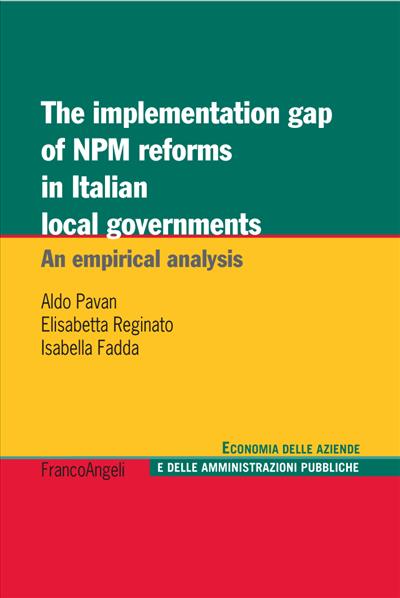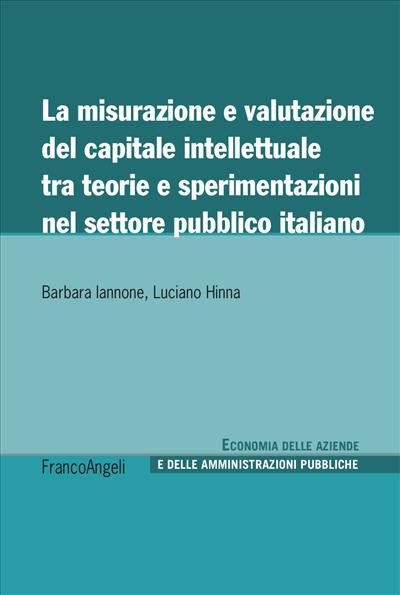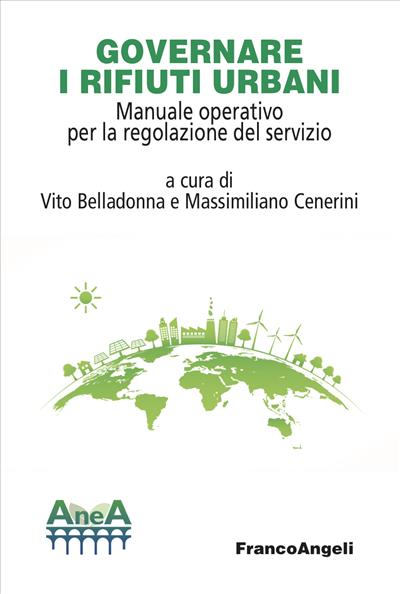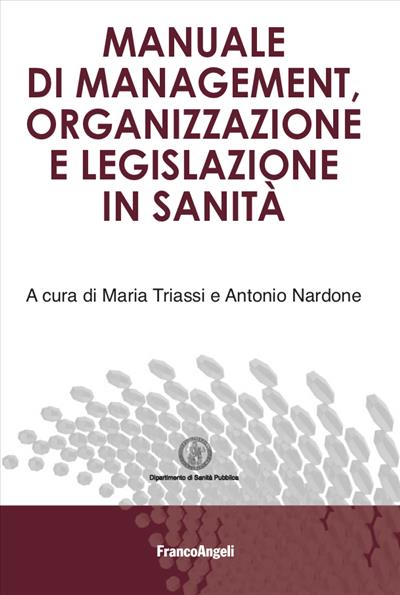
Aldo Pavan, Elisabetta Reginato, Isabella Fadda
The implementation gap of NPM reforms in italian local governments.
An empirical analysis
The New Public Management – Npm – has been implemented in Italy since the early Nineties. This research mainly aims to assess the actual implementation state of the reforms in Italian local governments, not only in terms of compliance with the rules, but also, and above all, in the correct interpretation and use of the new accounting and control instruments they have introduced.
Pagine: 144
ISBN: 9788891720566
Edizione:1a edizione 2014
Codice editore: 374.1.4
Possibilità di stampa: No
Possibilità di copia: No
Possibilità di annotazione: No
Formato: PDF con DRM Readium LCP




